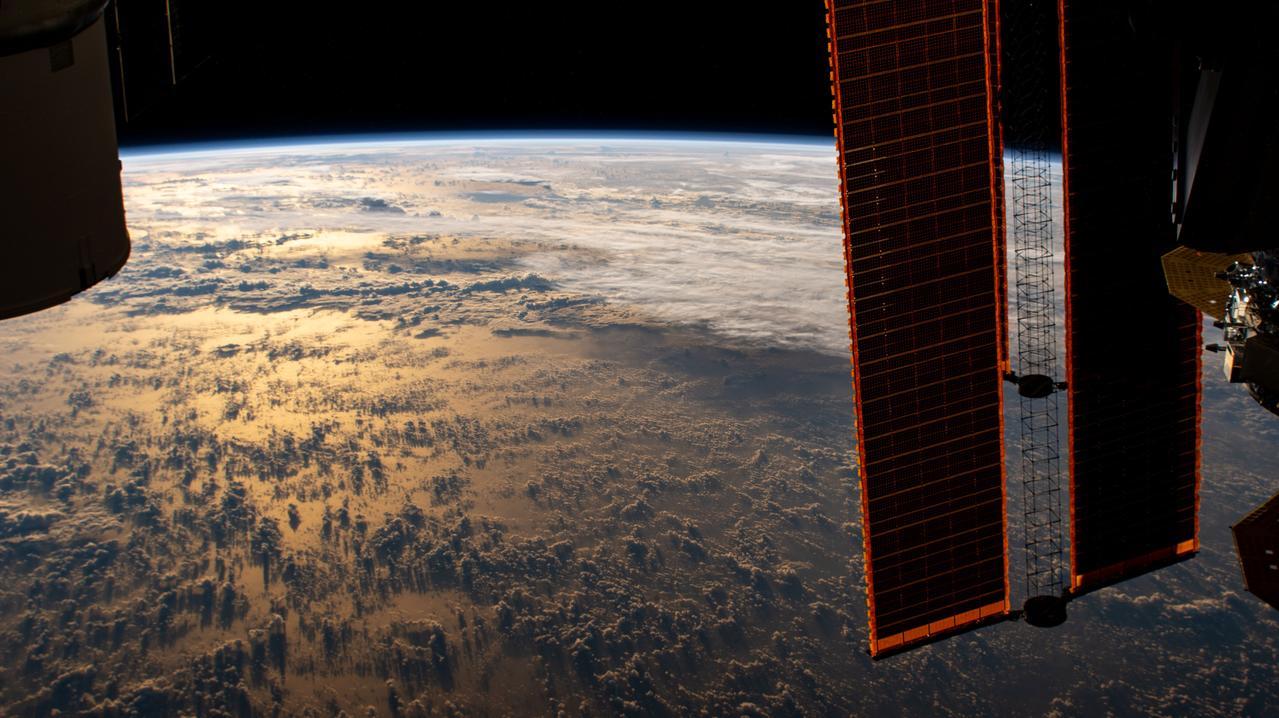Latest News
Space Policy Needs to Take Priority for Asia-Pacific Regional Cooperation, Experts Say

The International Space Station orbiting over the Philippine Sea. Photo: NASA
PERTH, Western Australia — Space policy needs to take center stage in Asia-Pacific and Indo-Pacific regional co-operation to help address shared issues the region faces, regional leaders said at the Indo-Pacific Space and Earth Conference (IPSEC) in Perth, Western Australia in late November.
The Asia-Pacific and Indo-Pacific regions are at a “pivotal moment” with the need to harness the potential of space technologies for the benefit of all, Dr. Gay Jane Perez, deputy director general for Space Science and Technology at the Philippine Space Agency.
“They enable us to monitor natural disasters, manage resources and respond to pressing challenges such as climate change. Space is not just a domain for exploration, but also solutions, offering significant opportunities that increase our resilience and foster sustainable development,” said Perez.
“In regional cooperation, space therefore must be center stage,” she stressed.
Dr. Cassandra Steer, chair of the Australian Centre for Space Governance, said regional space policy can contribute to solving issues in the region like connecting remote and rural communities through communications, collaborative data, water management, bushfire response, and security issues like maritime and military intelligence.
The region needs to advance space technology cooperation, particularly civil space cooperation, Steer said. “What we are all committed to is a peaceful and stable region where we are lifting up the economies that need support and ensuring that the capabilities that we have are mutually beneficial,” she said.
Data sharing and creating a regional space ecosystem are increasingly important as geopolitical tensions rise in the region, said Steer. Cooperation with like-minded countries in the region can ensure that countries don’t turn to other powers, such as China, for those capabilities, said Steer.
Collaboration in space programs is already under way in the region, through the Asia-Pacific Regional Space Agency Forum (APRSAF), and projects such as Sentinel Asia, which is an initiative led by APRSAF to support disaster management in the region through the use of EO satellites. Sentinel Asia showcases regional cooperation and allows regional partners to “translate data into action, particularly in disaster response and preparedness,” said Perez.
Perez also highlighted the Philippines’ CopPhil (National Copernicus Capacity Support Action Programme) which is designed to strengthen the country’s ability to address climate vulnerabilities. CopPhil, which is currently focusing on ground motion monitoring; land cover, forest and crop mapping; and coastal marine habitat monitoring, offers a model that could be expanded across the Asia-Pacific, said Perez.
“Space technologies must not only provide data, but also the tools and resources for action. Original policies must focus on realizing the social economic benefits of these technologies, ensuring that they translate into meaningful change for our communities,” said Perez.
Meanwhile, Taiwan’s first in-country developed satellite, Formosat-5, has been used in the region for disaster management and monitoring environmental changes, and even in Thailand in rice paddy field mapping to improve rice yields, said Frank Lo, supervisor of the Office of International Cooperation at the Taiwan Space Agency (TASA).
“Japan has multi-lateral collaboration in the Asia-Pacific. It’s not just about our internal interests,” said Dr. Kate Kitagawa, senior counselor for International Relations at Japan Aerospace Exploration Agency (JAXA). Japan has an almost $2 billion USD fund allocated to fund innovative new space programs. The fund is based in Japan but open to collaborators, said Kitagawa.
Collaboration in space between Australia and Japan is particularly strong and there is the opportunity to grow this partnership and contribute to wider regional and geopolitical interests.
“We have an existing strong relationship, but the opportunity is there to grow that, with us also having a growing security partnership. It’s not just about what Australia and Japan can achieve together, but because these regional partnerships can achieve so much [for the wider region],” said Steer.
She added that regional policies should focus on the societal benefits of space because it is part of shared interests. Regional policy needs to focus on the issues that need to be solved first, rather than capability areas the region needs to develop, because that will come after identifying the social benefit, she added.
“Regional policies really need to focus on the societal benefits because those are our shared interests in the region. We are all dealing with climate change, and agricultural and water issues. We need to solve issues together so that society will benefit,” Steer said.
JAXA’s Kitagawa highlighted the importance of including all countries in the region, including those that don’t have a space agency or research institute for space research, but still have needs.
“We can’t leave them behind. We need to look at what’s there, not just from an institutional perspective, but a real need,” Kitagawa said.
Perez added: “Access to space is no longer limited to a select few, but has become increasingly available for nations worldwide. In this transformative period, it is essential that our collective efforts keep space activities safe, secure and sustainable.”
[More from IPSEC: Australia’s Approach to Space Defense Shifts After JP9102 Cancellation]
Get the latest Via Satellite news!
Subscribe Now